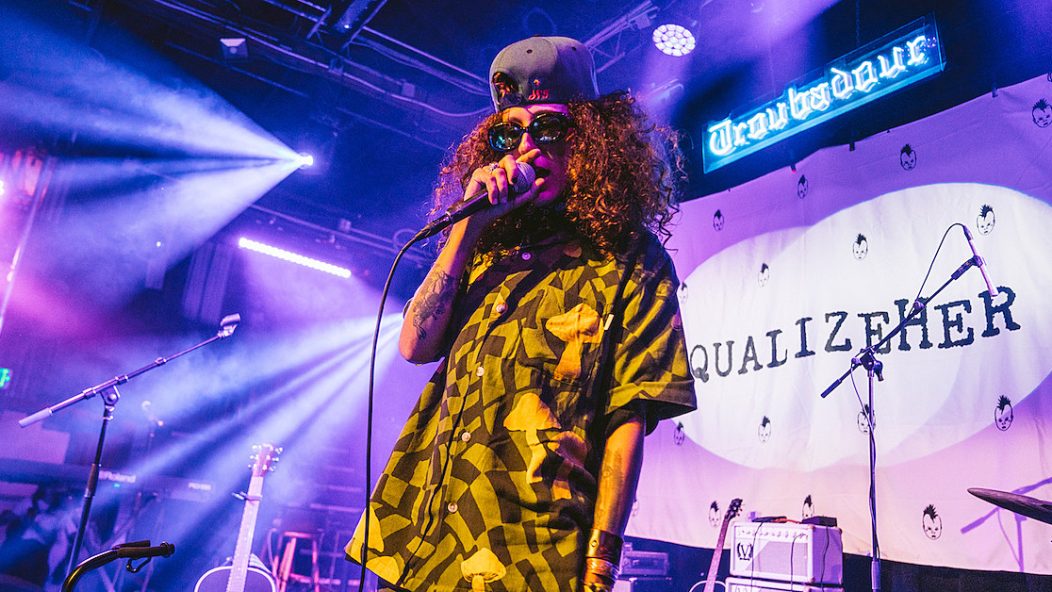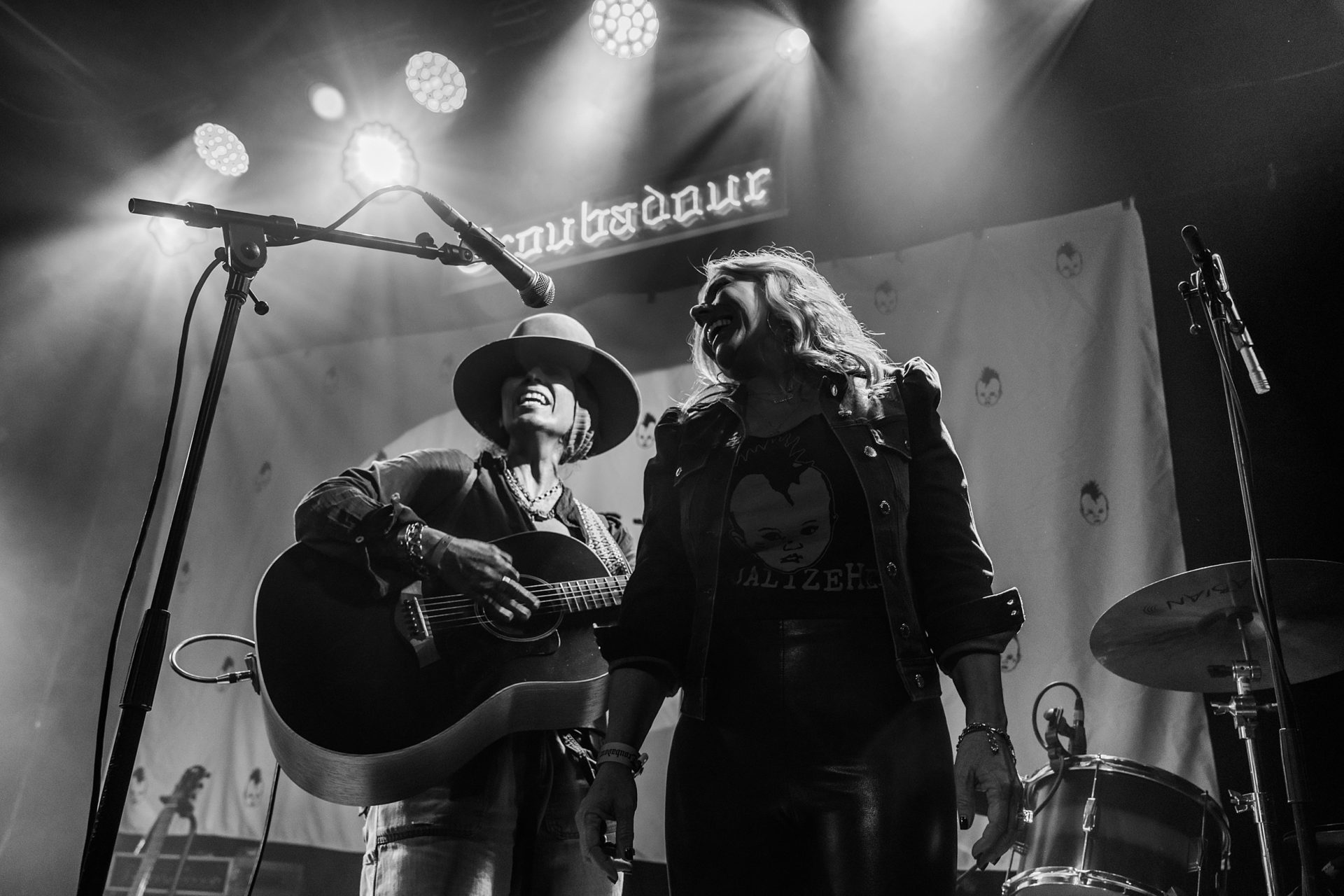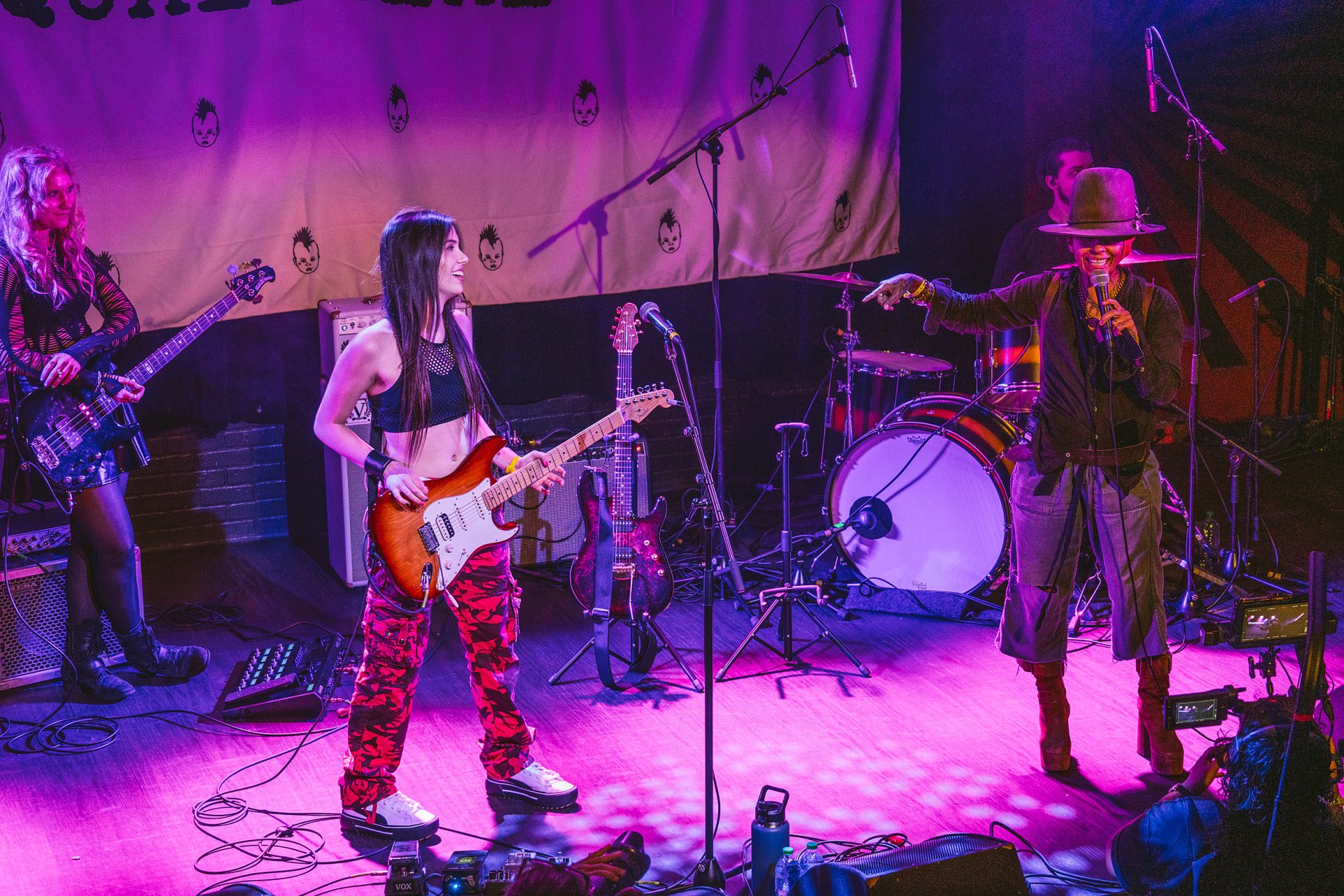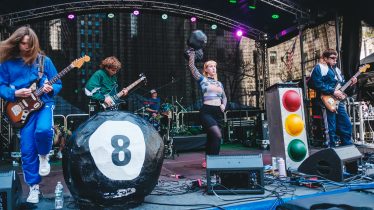
How EqualizeHer is working to bring gender equity to the music industry
Linda Perry is tired of the “dude’s club” in the music industry. As the lead singer for 4 Non Blondes and a music industry veteran of over three decades, the way that women are underrepresented in music couldn’t be more apparent.
She’s right, too. As of March 2021, women represent only 21% of artists, 12.6% of songwriters, and 2.6% of producers. Equally staggering is the fact that fewer than 1% of popular songs are written exclusively by women, while only 30.6% of songs have a single woman writer. Beyond that, only 13.4% of Grammy nominees from 2013 to 2021 have been women.
Read more: How three star-studded benefit concerts came together in Chicago, NYC, & LA to support abortion rights
For Perry, who’s spent her career trying to uplift women artists and working closely with names like Christina Aguilera, Gwen Stefani, and P!nk as a songwriter and producer, it’s a constant frustration. She says, “There hasn’t been a female included in the nomination for [Best Producer at the Grammys] since me, and that was, what, five years ago? That’s crazy. That’s absolutely insane to me.”
So Perry and music-loving philanthropist Alisha Ballard, who she met through a mutual friend, are doing something about it. Together, in March 2022 they launched EqualizeHer, an initiative with the goal to achieve equal representation of women and non-binary people across all sectors of the music industry, from recording studios to stages to board rooms.

[Linda Perry and Alisha Ballard at EqualizeHer’s Troubadour event/Photo by Heidi Zumbrun]
When Perry and Ballard initially began talking, they discussed Perry’s experiences working in music, including the lack of safety at times. Ballard says it soon became clear that improving the number of women and female-identifying artists in the business “needed to be our No. 1 priority” in order to both increase representation and better their overall experience in the industry.
“We’ve talked about this as a culture shift,” Ballard says. “Why is it that girls aren’t going into engineering, producing, and mixing — all the things that are more behind the scenes? I think a lot of it is the culture that girls are raised in: We’re kind of taught [how] to be, [that] our sex appeal is what makes us valuable, all of those things. So I think when you start with youth, and you start training, changing that mentality, changing that culture, you provide opportunities for them … to learn to be a producer, to learn to mix and master, to learn to DJ, whatever their passion is.”
In October, Perry and Ballard hosted an event for EqualizeHer at legendary venue the Troubadour in Los Angeles. With an audience of hundreds of industry notables and fans, the event — which included live performances by Aimee Mann, Tinashe, and paris jackson — served as a showcase for young, aspiring women artists to perform at the iconic venue.
Going forward, EqualizeHer will focus on hosting live events, including workshops and more concerts, which Perry says will aim to bring awareness to the various fields within the industry to young girls and women.

[Jasmine Star at EqualizeHer’s Troubadour event/Photo by Heidi Zumbrun]
“We’re trying to support all the other organizations out there,” Perry adds, noting EqualizeHer does hope to collaborate with similar initiatives in music. ”But we don’t see anybody doing what we’re doing: We’re taking it to the streets, we’re going live, we’re jumping on stage, and we’re being active.”
By getting out in the world and hosting events, EqualizeHer feels as though that’s the most effective way to inspire young artists, and help be the catalyst in fulfilling their dreams of working in the industry. Ballard says, “Just being able to nurture them along the way and say, ‘How do we make that? How do we create a safe space for them to pursue their passion and step into the world of music and actually be successful?’ Because as everyone knows, it’s very difficult to make a living doing music.”
Last March, the duo officially launched EqualizeHer at an event at South by Southwest. The entire operation was run entirely by women, and more than 500 people attended.
“We had 15 artists in two days, and it was kids coming out of schools or in school, getting them on stage for the very first time, singing their songs to people — to strangers for the very first time — their parents witnessing them on stage doing this for the very first time,” Perry says. “And those girls lit up. It was just so beautiful watching.”
With more events on the way, it seems likely that those won’t be the only young artists EqualizeHer helps to light up on stage.










